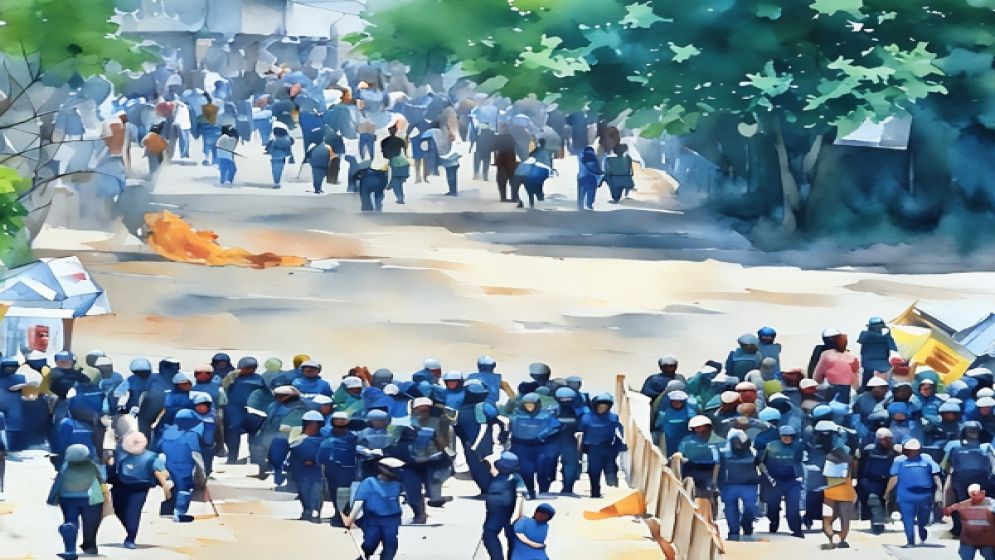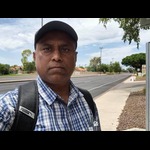By using excessive force to suppress a civilian protest, the Bangladesh government has crossed a threshold this time

Heavy-handed approach to suppress quota
During the internet outage, it was difficult for us to stay updated on recent events in Bangladesh from abroad.
However, we have learned from various sources that several hundred students were killed by the police, RAB (Rapid Action Battalion), and BGB (Border Guard Bangladesh), with assistance from the ruling Awami League’s student wing–Bangladesh Chhatra League (BCL).
The protesters, who were calling for the elimination of the quota system to ensure equal access to government jobs, faced an unprecedented wrath of the government forces.
It is both astonishing and unprecedented that a government claiming to be democratic deployed even the army against students after the police and BGB failed to suppress the protests.
Many believe that the Awami League government, led by Prime Minister Sheikh Hasina, disastrously mishandled the situation and failed to use her political skills effectively. Instead, she attempted to crush the students' protests in an autocratic manner.
From the outset, the police were aggressive and did not hesitate to fire at unarmed students. After weeks of unrest, the government resorted to deploying the army to control the situation, bypassing the possibility of negotiations.
This decision came despite the students’ reluctance to engage in talks following the brutal killing of their peers. Although the quota for the children of 1971 freedom fighters was reduced from 30 percent to 5 percent, this concession did not appease the students, who continued to demand the arrest and prosecution of those responsible for the killings.
Sheikh Hasina’s heavy-handed rule
Sheikh Hasina, the daughter of Sheikh Mujibur Rahman–the architect of Bangladesh’s independence– has been in power for the past 15 years.
While she advocated for free and fair elections under a neutral caretaker government when she was in opposition, she dramatically reversed her stance once elected Prime Minister under a controversial caretaker government in December 2008.
She abolished the concept of a caretaker government from the constitution and has since governed with an iron fist, leaving no effort spared to undermine the main opposition, the BNP.
During her tenure, three general elections have been held under the Awami League government, all of which the opposition has condemned due to allegations of widespread vote rigging.
Despite these challenges, the opposition has struggled to unify and effectively demand a neutral government. Moreover, the government has consistently taken harsh measures against opposition efforts to organize significant anti-government movements.
During Sheikh Hasina's tenure, we witnessed a series of harsh actions, including the midnight crackdown on Hefazat-e-Islam, the bloodshed of Jamaat-e-Islami protesters following the International Crimes Tribunal's verdict against their leader Moulana Delwar Hossain Sayeedee, and the killing of dozens who protested Indian Prime Minister Narendra Modi's visit to Bangladesh a few years ago due to his role in the Gujarat riots of 2002.
Each time, Sheikh Hasina and her government responded with severe measures to suppress dissent. However, the current actions taken against young students have surpassed previous instances.
It is hard to fathom that a civilian government could act with such military-like force.
A threshold is crossed this time
This time, the Bangladeshi government employed excessive brute force on civilians to quell the student protests. Even the armed forces provided extensive support to the police and BGB in their efforts to suppress the students and force them to abandon their demands.
Moreover, government agencies have already begun retaliating against student leaders. Reports indicate that the police and BGB have been abducting individuals from their homes and taking them to undisclosed locations.
Unprecedentedly, the law enforcers and armed forces have been using United Nations (UN) helicopters and vehicles against the student protesters. Despite their long-standing role in UN peacekeeping missions, the army's current actions appear to contradict the principles of these missions.
While the Bangladeshi army has excelled in peacekeeping abroad, they have struggled to win the support of their own people.
Another troubling aspect is that the government's current actions and the silence of the 1971 freedom fighters are likely to tarnish their legacy.
This situation raises questions about the true motivations of the freedom fighters: Did they fight in 1971 to liberate the country and serve their fellow citizens, or was it for personal gain?
Observers believe that, in the face of ongoing mass killings, the brave freedom fighters of 1971 should not remain silent. A genuine freedom fighter cannot stay silent in the face of widespread violence, even if the students' demands challenge their own interests.
This was not a political issue; it was a student demand. The government's response to suppress it was unacceptable. The level of violence we are witnessing now is unprecedented, even compared to what occurred during the liberation war.
Instead of addressing the issue through dialogue, the government has resorted to severe measures, similar to its approach with other political movements.
Ironically, a government that promised to build a digital Bangladesh has cut internet access, effectively plunging the country back into a pre-internet era. People are now afraid to speak out due to the threat of government retaliation.
In response to this situation, expatriates have begun staging demonstrations in major cities worldwide.
The government must urgently seek a solution that is acceptable to all parties. Firstly, government agencies need to adopt a more tolerant approach, and the army should be withdrawn from the streets.
The army should not be politicized, nor should it be used to protect the government from dissent. Any delay in addressing these issues will be harmful not only to the country but also to the government itself.
—
CM Kajawl is an US-based journalist and commentator

